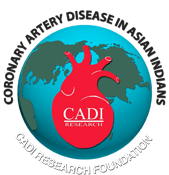INTERSTROKE
- INTERSTROKE was a standardized case-control study in 22 countries worldwide done between 2007 and 2010. The contribution of various risk factors to the burden of stroke worldwide is unknown, particularly in countries of low and middle income. The objective of the study was to identify and the various risk factors and its association with various subtype of stroke. 1
- Globally of all strokes 78% are ischemic stroke and 22% are intracerebral haemorrhagic stroke. 1
- Significant risk factors for all strokes were: history of hypertension, current smoking, abdominal obesity, unhealthy diet, physical inactivity, diabetes, alcohol intake (more than 30 drinks per month or binge drinking), psychosocial stress, depression, cardiac causes and abnormal lipids (ratio of apolipoproteins B to A1). Collectively, these risk factors accounted for 88% of all strokes.1
- These risk factors were all significant for ischemic stroke, whereas hypertension, smoking, abdominal obesity, diet, and alcohol intake were significant risk factors for intracerebral haemorrhagic stroke.1
- These findings suggest that ten risk factors are associated with 90% of the risk of stroke. Targeted interventions that reduce blood pressure and smoking, and promote physical activity and a healthy diet, could substantially reduce the burden of stroke.1
Sources
1. O’Donnell M. J., Xavier D, Liu L, et al. Risk factors for ischaemic and intracerebral haemorrhagic stroke in 22 countries (the INTERSTROKE study): a case-control study. Lancet. Jul 10 2010;376(9735):112-123.

